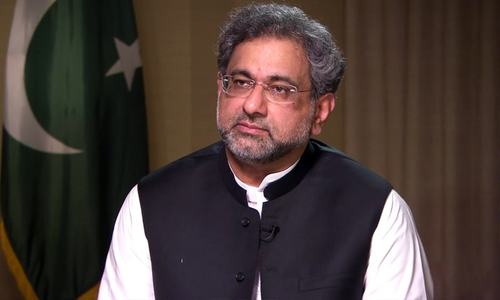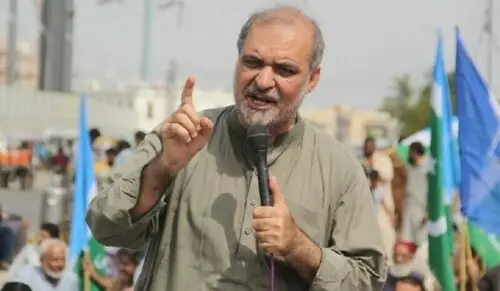WASHINGTON: Foreign Minister Khawaja Muhammad Asif is likely to meet US Secretary of State Rex Tillerson in Washington on Wednesday for resuming bilateral talks initiated in New York last week.

The US and Pakistan had their first high-level meeting after President Donald Trump’s Aug 21 policy speech in New York last week, when Prime Minister Shahid Khaqan Abbasi met US Vice President Mike Pence.
At the meeting, Mr Pence suggested sending a US delegation to Islamabad for talks aimed at removing tensions that cropped up after the Aug 21 speech which Mr Trump used for announcing salient features of his new South Asia policy.
Islamabad accepted the US proposal but asked for a high-level meeting in Washington before the visit for sending a positive message to people in Pakistan who were irked by the speech.
Pakistani officials pointed out that the speech had annoyed both opposition and ruling parties who unanimously adopted a resolution in the parliament, urging the government to reconsider its relations with the United States. Some opposition parties also asked the government to downgrade its ties with Washington and further strengthen its strong relations with China.
Pakistani officials also warned that since this was the election year in Pakistan, this rhetoric may get worse before it starts to improve. They also suggested that a high-level meeting between the foreign policy chiefs of the two countries would help bring down the temperatures.
Apparently, Washington accepted the Pakistani argument and invited Mr Asif for a meeting with Secretary Tillerson on Oct 4. On Oct 5, the foreign minister is also addressing a gathering at the US Institute of Peace (USIP), Washington, on US-Pakistan relations.
While the USIP has confirmed the talk, the State Department is still reluctant to publicly announce the visit. “We don’t have anything to announce at this time,” said a State Department official when asked to confirm the Tillerson-Asif talks.
The USIP, however, confirmed the talk, pointing out that President Trump’s Aug 21 speech had not only “unsettled US-Pakistan relations” but also had “serious implications for US interests in Afghanistan, nuclear non-proliferation, and stability in the region”.
In that speech, President Trump blamed Pakistan for maintaining alleged safe havens for terrorists, threatened economic and military sanctions against Islamabad and announced a larger role for India in Afghanistan, ignoring Pakistan’s concerns.
Policy makers in Washington have also noted with interest Mr Asif’s speech earlier this week at the Asia Society in New York, where he acknowledged that jihadi elements — particularly Lashkar-e-Taiba and Hafiz Saeed — had become a liability for Pakistan.
In that speech, Mr Asif also insisted that the United States and other Western powers shared the blame for the rise of extremism in South Asia. He said that during the Afghan war (1979-89), the US and its allies encouraged such elements from across the world to come to the region to fight the Soviet Union. Instead of staying in the region after the war to clear up the mess, they left abruptly, leaving Pakistan alone to deal with the extremists, he added.
“Some people in Washington understand Pakistan’s grievances but Islamabad will make a mistake if it severs its ties with Washington and moves entirely into the Chinese camp,” said Robin Raphel, a former Assistant Secretary of State and a long-time Pakistan friend in Washington. “The complaints President Trump voiced in his speech are not new. The US has shared those with Pakistan in the past as well.”
Pakistani officials also acknowledge discussing those issues with the Americans in the past but say that they fail to understand why President Trump went public with those grievances when the two countries already have several channels for discussing them.
Published in Dawn, September 30th, 2017
































